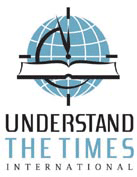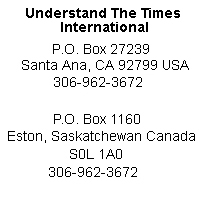A forthcoming United Nations-organised conference on communications poses a grave threat to the freedom of the internet, Google has warned.
The Silicon Valley search giant said the December gathering of the UN's International Telecommunications Union comes amid 'a growing backlash on Internet freedom'. The World Conference on International Communications in Dubai will update global telecom rules for the first time since 1988, and some countries see this as an opportunity to set up new rules for the Internet.
There are fears proposals made by China, Russia and other nations could threaten the open model of Internet governance by giving the UN a greater role. Oversight of the net's domain name system and technical specifications is currently undertaken by U.S.-based bodies, but some countries want an international organisation to take responsibility.
Google's statement said 'the ITU is the wrong place to make decisions about the future of the Internet' because 'only governments have a voice at the ITU,' including some 'that do not support a free and open Internet.' 'The ITU is also secretive,' Google said. 'The treaty conference and proposals are confidential.'
Google said some proposed treaty changes 'permit governments to censor legitimate speech — or even allow them to cut off Internet access'. Others, the company warned, 'would require services like YouTube, Facebook, and Skype to pay new tolls in order to reach people across borders.
The Silicon Valley search giant said the December gathering of the UN's International Telecommunications Union comes amid 'a growing backlash on Internet freedom'. The World Conference on International Communications in Dubai will update global telecom rules for the first time since 1988, and some countries see this as an opportunity to set up new rules for the Internet.
There are fears proposals made by China, Russia and other nations could threaten the open model of Internet governance by giving the UN a greater role. Oversight of the net's domain name system and technical specifications is currently undertaken by U.S.-based bodies, but some countries want an international organisation to take responsibility.
Google's statement said 'the ITU is the wrong place to make decisions about the future of the Internet' because 'only governments have a voice at the ITU,' including some 'that do not support a free and open Internet.' 'The ITU is also secretive,' Google said. 'The treaty conference and proposals are confidential.'
Google said some proposed treaty changes 'permit governments to censor legitimate speech — or even allow them to cut off Internet access'. Others, the company warned, 'would require services like YouTube, Facebook, and Skype to pay new tolls in order to reach people across borders.












